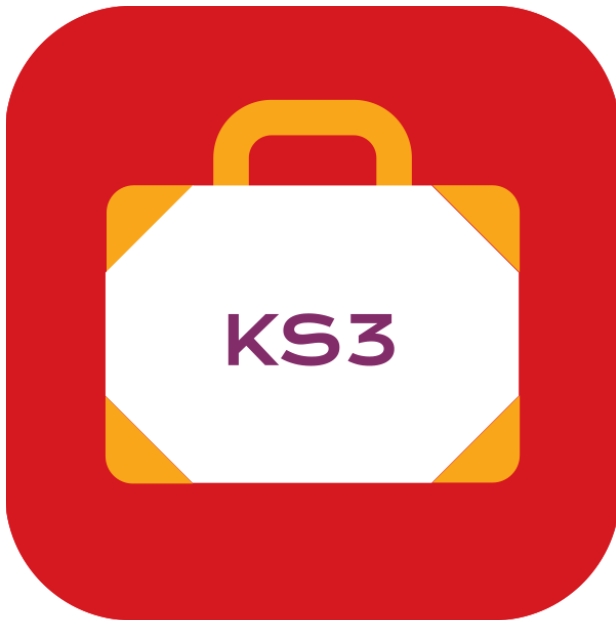Key Stage 3—what?
Key Stage 3 (KS3) is the three years of schooling for 11–14-year-olds in England and Wales. This level provides a crucial transition between primary school and Key Stage 3 more specialized courses, covering Years 7, 8, and 9.
Important of Key Stage 3 in Education
KS3 sets the stage for academic achievement. It exposes pupils to more disciplines and helps them build crucial skills and knowledge for later years.
Curriculum Overview
Core Topics KS3 pupils study English, Maths, and Science, the cornerstone of their education. Essential for critical thinking and problem-solving, these disciplines are required.
Optional Topics Students can choose Modern Foreign Languages, Humanities (Geography, History), Arts & Design, and Technology in addition to basic disciplines. This helps children find their abilities and interests.
Extracurriculars In KS3, extracurricular activities help kids develop social skills, hobbies, and physical activity. To enhance student life, schools provide many clubs and sports teams.
Core Subjects in Detail
English
- Importance of English: English is vital for communication and literacy development. It enhances reading, writing, speaking, and listening skills.
- Key Topics Covered: Students study a range of literature, including novels, poetry, and plays. They also focus on grammar, vocabulary, and creative writing.
Mathematics
- Importance of Mathematics: Mathematics develops logical thinking and problem-solving abilities. It is essential for various real-life applications and further academic pursuits.
- Key Topics Covered: Key areas include algebra, geometry, statistics, and number operations. Practical problem-solving and mathematical reasoning are emphasized.
Science
- Importance of Science: Science fosters curiosity and understanding of the natural world. It is fundamental for developing analytical skills and scientific knowledge.
- Key Topics Covered: The curriculum includes biology, chemistry, and physics. Students conduct experiments and learn scientific principles and theories.
Optional Subjects and Their Benefits
Modern Foreign Languages Learning a new language improves cognitive ability and cultural awareness. Common languages include French, Spanish, and German.
Humanities Students learn about the world through geography and history. They learn analysis and critical thinking.
Art and Design Creative disciplines let pupils express themselves and learn art. Visual, musical, and dramatic arts are examples.
Technology education equips pupils for digital life. It promotes creativity and technical skills through ICT and Design and Technology.
Extracurricular Activities
The Value of Extracurricular Activities
Students learn leadership, responsibility, and social skills through extracurricular activities. A balanced education is provided.
Schools offer athletics, music, drama, and clubs like chess, debate, and robotics. These activities accommodate varied talents. Schools like Lady Evelyn and Thomas Keith provide their students with bonuses like Social Wonderkid Circles and free school clubs including Drama, Cooking, and Debate clubs, which have been a big hit with both the parents and students.
Assessment and Progress Tracking
Assessment Types KS3 assessments include formative (ongoing evaluations), summative (end-of-term exams), and practical (projects and experiments).
Monitoring Progress Teachers analyze progress and identify areas for development. Regular reports and parent-teacher meetings inform parents.
Value of Regular Feedback Regular feedback encourages a development attitude and continual learning by helping students identify their strengths and weaknesses.
Supporting Students in Key Stage 3
Parents’ Role Parents’ support and encouragement are vital. Engaging with their child’s education and communicating with teachers is crucial.
Teachers offer the curriculum and help students grow academically and personally. Mentorship and customized support are provided.
Schools offer tutoring, counselling, and study groups to help students who need it.
Challenges Faced During Key Stage 3
Students may struggle with increased workload and subject complexity. You need time management and study abilities to overcome these problems.
The social and emotional shift to secondary school can be difficult. Students must adjust, make friends, and manage stress.
Open communication, support, and healthy coping skills can help students overcome these issues.
Transition from Primary to Secondary Education
Secondary school curriculum is more regimented and rigorous. Multiple teachers and subjects require more organization and independence.
Parents and schools can reassure youngsters, familiarize them with the new surroundings, and clarify expectations.
Tips for a Smooth Transition
- Encourage organizational skills.
- Promote positive social interactions.
- Establish a consistent routine.
Preparing for Key Stage 4
Students prepare for exam-focused KS4 in KS3. This shift must be understood and planned for.
GCSE subject selection is critical. Students should assess their strengths, interests, and goals.
Success in KS4 and beyond requires academic foundation and skill development in KS3. Exploration and confidence-building are encouraged.
Importance of Mental Health and Well-being
Stress symptoms like mood swings, behavior changes, and withdrawal must be recognized.
A healthy mindset is promoted by a balanced lifestyle, optimistic thinking, and resilience.
Schools offer counseling, mindfulness programs, and support groups to help students manage mental health.
The Role of Technology in Education
Technology makes learning dynamic and individualized. Collaboration and access to many resources are supported.
Educational apps, online courses, and digital libraries help. These materials aid classroom and independent study.
Online safety education is vital. Learn how to safeguard your privacy, spot cyberbullying, and use the internet properly.
Parental Involvement
Parents can participate by attending school events, checking academic progress, and engaging with teachers.
Regular teacher communication helps resolve issues and boosts student achievement.
There should be a study room, a routine, and encouragement for academic and extracurricular interests at home.
Future Prospects
KS3 lays the groundwork for further education. It promotes individual learning, critical thinking, and problem-solving. Early career assistance helps pupils comprehend job options and make future selections.
Conclusion
Key Stage 3 is crucial to your education. It provides fundamental skills and prepares children for academic achievement with a comprehensive curriculum. Strong KS3 foundations lead to great futures. Students may grow and reach their potential with assistance and tools.

